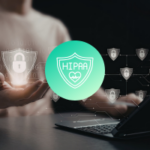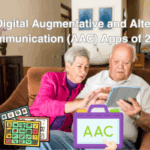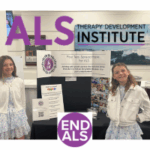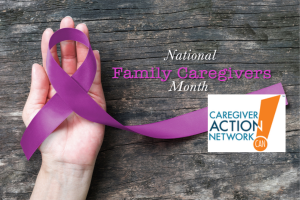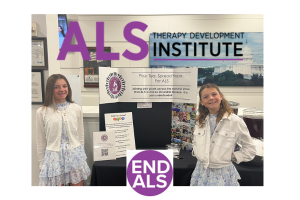Read our inspiring interview with former Alabama and NFL player, Kerry Goode as we honor ALS Awareness Month this May, 2025.
In recognition of ALS Awareness Month, we at SimpliHere had the honor of interviewing Kerry Goode, a remarkable individual and former NFL player whose life and career have been defined by resilience and leadership. His ALS diagnosis has added another chapter to his story of resilience and unyielding determination – one that underscores his strength, and the importance of ALS awareness and support for those who live with it. We hope you enjoy this conversation with Kerry and, if you do, that you’ll purchase his book, Goode and Faithful Servant: The Kerry Goode Story.

Could you share some background about your career, including your time playing for Alabama and in the NFL?
I’ve always believed that life is a series of defining moments—some that lift us up, others that test our resolve. My journey in football has been no different.
As a freshman at the University of Alabama, I was honored to be named SEC Freshman of the Year, a recognition that fueled my drive for greatness. The following year, my sophomore season started in spectacular fashion — 297 yards of total offense in the first half, followed by a 99-yard kickoff return for a touchdown to open the second half. I was unstoppable.
Then came the moment that changed everything. In the next series, I suffered a devastating knee injury — one that would alter my path forever. From that point on, my career became a fight to recover, to reclaim the dominance I once had. Yet, through the ups and downs, my leadership never wavered, and being voted team captain at Alabama remains one of my greatest honors.
Despite the setback of my injury, my dream of playing in the NFL became a reality. I was drafted by the Tampa Bay Buccaneers and spent time with the Denver Broncos and Miami Dolphins. The road wasn’t easy, but every experience shaped me — not just as a player, but as a man.
When my playing days ended, I found new purpose in coaching. Having been through the highs and lows of the game, I knew I could offer young athletes more than just technique — I could provide perspective, wisdom, and the kind of guidance that goes beyond X’s and O’s.
Football has given me everything — joy, heartbreak, lessons, and purpose. And through it all, I’ve learned that adversity doesn’t define you; it refines you. Whatever your journey, keep pushing forward. Your defining moments are still ahead.
When were you diagnosed with ALS?
For years, I knew something wasn’t right. I felt it in my body — subtle changes that grew into undeniable struggles. But answers didn’t come easily.
I spent years visiting specialists in every field of medicine, searching for explanations. Cardiologists, rheumatologists, orthopedic surgeons, you name it — I saw them all. Each visit came with tests, treatments, and theories, but none provided real clarity. I went from office to office, hoping for relief, but instead, I found more uncertainty.
It wasn’t until 2015 that I finally sat across from a neurologist, the doctor who would change everything. The diagnosis came: ALS.
I remember that moment vividly — the weight of those words sinking in, the realization that my life had just taken a turn I could never have prepared for. ALS, often called the bankruptcy disease, would demand more than I ever imagined — physically, emotionally, and financially.
The symptoms I once fought alone now had a name. The frustrations I couldn’t explain finally had meaning. And yet, the struggle was only beginning.
Receiving an ALS diagnosis is devastating, but knowing what I was fighting gave me the strength to face it head-on. It hasn’t been easy — each day comes with new challenges, rising expenses, and moments of deep frustration. But through it all, I refuse to let this disease define me.
To anyone still searching for answers — don’t stop advocating for yourself. Push for the right doctors, the right tests, and the clarity you deserve. And if you’re walking this road with ALS, know this: you are not alone.
How do you leverage caregivers and the community for support?
Finding the right caregiver has been — and continues to be — one of the greatest challenges of this journey. It’s more than just hiring help; it’s about trust, understanding, and finding someone who truly sees your needs beyond the surface.
I was fortunate to have a caregiver who was everything I needed — compassionate, capable, and fully present in the way that made daily life more manageable. But when she left on maternity leave, I found myself back in the cycle of searching, adjusting, and trying to fill a void that felt impossible to replace.
Through it all, my wife Tanja has been my constant, handling my care with a level of love and commitment that no one else could. While this disease has taken so much, it has also deepened our bond in ways I never could have imagined. Every act of care, every sacrifice she makes, reminds me of the strength that love carries — even in the hardest moments.
Beyond caregivers, I lean on the community for support. Friends, family, and even those who have walked this same road provide a lifeline when the weight of it all feels too much. I’ve learned that asking for help isn’t a sign of weakness — it’s a necessity. And in these moments, connection is everything.
So, I keep going, surrounded by the people who stand beside me, who remind me that I am never truly alone in this fight. If you are searching for support, know that it’s out there — sometimes in places you least expect. Never be afraid to lean on others. It’s what keeps us moving forward.
How do you maintain humor and a positive attitude amidst the challenges?
Have you ever been in a situation so ridiculous that you just have to laugh? That’s pretty much my daily reality. ALS doesn’t come with an instruction manual, but if it did, I imagine it would say, “Prepare for unexpected shenanigans.”
Sure, I could focus on the frustrations — like how the ants in my house seem to have no respect for personal space, or how hiring help for things I used to do myself is slowly draining my bank account. But where’s the fun in that? Instead, I choose to laugh.
I laugh at the absurdity of dropping something and watching it roll just out of reach, like it’s mocking me. I laugh at the fact that my life has turned into a real-time obstacle course, except there’s no trophy at the end — just me, trying not to knock over the furniture. And when things get really tough, I remind myself that worrying won’t change a thing — but finding joy in the moment will.
At the end of the day, I still get to choose how I respond. I can either sit in the gloom and doom, or I can appreciate the small victories, the hilarious mishaps, and the beautiful moments that come with simply being alive. So, if life throws a curveball (or in my case, several), just lean into the laughter. Because in the grand scheme of things, we might as well enjoy the ride.
What kind of technology do you use for communication and mobility?
If it weren’t for technology, my life would be drastically different — frustrating, limiting, and full of obstacles that no amount of sheer willpower could overcome.
I am unable to speak, and before I lost my voice completely, I made the decision to bank it — a choice that has changed everything. Now, I can communicate through my computer, and instead of the frustration of having people struggle to read my lips (which only leads to anger and exhaustion), I can speak clearly in a way that allows real conversations to happen.
Beyond communication, technology gives me freedom. I drive my wheelchair using my eyes, an incredible advancement that has restored a sense of independence I thought I might lose forever. When the world takes something from you, you learn to appreciate what you still have. And thanks to these tools, I still have the ability to move, express myself, and stay connected.
Without these innovations, my reality would be incredibly isolating. But with them, I continue to live, engage, and move forward. Technology hasn’t just made life easier — it has given me back a part of myself that I refuse to let ALS take away.
If there’s one thing I’ve learned, it’s this: use every tool available to keep pushing forward. There is always a way to adapt, to reclaim what feels lost, and to find independence in new ways.
Can you tell us about your book (Goode and Faithful Servant: The Kerry Goode Story), including what inspired you to write it, how the process has helped you, and how you aim to assist others in the ALS community?
When I first started sharing my journey with ALS on Facebook, I never imagined it would lead to writing a book. People kept encouraging me to do it, telling me my words were impactful, but deep down, I resisted. I wasn’t writing for profit — I was writing because I felt led by God to share my story. The connection I had with my followers was something real, something meaningful, and I didn’t want to lose that by turning it into a transaction.
So, I did what I’ve always done when faced with a crossroads — I prayed. I asked God: If You want me to write this book, You will have to provide everything I need to make it happen. And that’s exactly what He did.
Weeks later, I received a call from a publisher who was also a pastor, telling me that he felt led to help me write this book. A week after that, I was told that someone wanted to help with the cover design. Both of these men, guided by their own faith, offered their services free of charge.
At that moment, I knew — this book was meant to be written. I followed their lead, and made a commitment: every penny of profit would go to my foundation, supporting patients and families battling ALS.
Writing this book has been an extension of the journey I’ve already been sharing. It has helped me process my own experiences, deepened my connection with others, and most importantly, allowed me to offer hope and support to those walking the same road.
This book is not just my story — it’s proof that even in life’s toughest battles, faith, community, and purpose can create something greater than ourselves.
What are your hopes for future research to treat and hopefully eradicate ALS?
Living with ALS for the past 10 years has shown me both the brutal reality of this disease and the incredible strength of those who fight it. While I know a cure may not come in my lifetime, that doesn’t stop me from doing everything I can to make life easier for others who are facing this battle.
I’ve seen remarkable progress in ALS research over the years — new treatments, better technology, and breakthroughs that once seemed impossible. This gives me hope. Hope that a cure is near, hope that future generations won’t have to endure the same struggles, and hope that the fight we’re in today will lead to lasting change.
Until that day comes, my mission is clear: support, advocate, and uplift those impacted by ALS. Whether it’s raising awareness, funding research, or ensuring patients and families have the resources they need, I refuse to sit back and wait — I’m actively working to make life better now.
ALS takes a lot, but it won’t take my determination or my hope. A cure may not come for me, but I believe it will come, and when it does, I want to know that I did everything in my power to push the fight forward.
We are making strides, and together, we will see a future without ALS.
To learn more about Kerry, buy his inspirational book, Goode and Faithful Servant: The Kerry Goode Story or visit his website, where you can make a gift to the Goode Foundation.
About SimpliHere
The mission of SimpliHere is to ensure efficient care and peace of mind for caregivers and their patients with neurological conditions that impact communication and mobility. Joanna Rosenberg founded SimpliHere to address communication gaps between caregivers and patients. Her personal experience when her mother lived with ALS exposed the challenges of communicating and understanding basic needs, as well as managing daily tasks. Download SimpliHere today!


